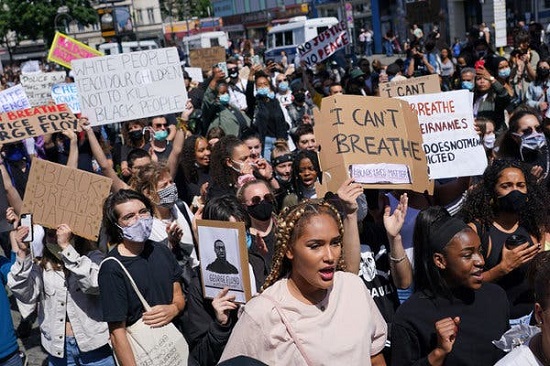I think to be a good veterinarian, you have to like people – Kevin Fitzgerald.
As the former chief veterinary officer under whose watch, Nigeria successfully eradicated Avian Influenza (AI), I owe it a duty to share a Veterinarian’s perspective on the current National response to the COVID19 pandemic.
Avian Influenza a viral disease was detected in Nigeria in 2006, posing a major threat to the national poultry industry. AI also had potential of becoming a global pandemic. However, through the concerted effort of Nigerian Veterinarians and partners in a multi-sectoral approach,the disease was successfully managed and eradicated after 2 years(2006-2008).
Nigeria has two poultry production systems namely free range (extensive) and commercial (intensive). Although majority of the estimated poultry population of over 150m, fall under free range, commercial poultry is the single most financially consolidated and the most vulnerable. The free-range poultry on the other hand is genetically resilient, practices social-distancing and thus less vulnerable. Consequently, specific strategies were adopted for managing AI in the commercial sector. These include: the application of both active and passive surveillance with laboratory confirmation; biosecurity and biocontainment, which involves the management of the risks of entrance and spread of the disease respectively; movement control, which relates to movement restrictions between infected, surveillance and free zones and payment of compensation for birds culled. The epidemic curve was successfully flattened and AI was eventually eradicated. The World Organisation for Animal Health (OIE) certified Nigeria free of AI in May 2013 and the country was globally acknowledged to have positively contributed to preventing avian influenza from becoming a global pandemic. Today our commercial poultry is the second largest in Africa, first in egg and fourth in meat production, thus, justifying the investment in disease control.
Advertisement
Unlike AI, COVID-19 pandemic has many unknowns making its management difficult.From what we know:1. COVID-19 is caused by coronavirus (2019-nCov) spreading through droplets of saliva or discharges from an infected person.2. People incubating the disease can cross border to later infect others 3. If infected, for many a very mild disease and for others serious illness particularly among health workers and the elderly with comorbidities 4. NCDC had conducted about 62,583 tests and reported 9,855 positive cases, 2,856 treated and discharged and 273 fatalities (30/05/20) and 5. An ongoing active community transmission because there are positive cases that cannot be epidemiologically linked to confirmed cases or with travel history.
The current National response strategy which requires massive testing and contact tracing to capture all new cases to quarantine and self-isolate,is proving cumbersome and unwieldy.Fora population of over 200m it will not only be expensive but also challenging; due to limited manpower, dearth of equipped labs and isolation centres. Furthermore, self-Isolation and social distancing are proving impracticable in many urban areas and homes.Also, lockdown has disrupted medical and many other essential services, interfered with the seasonal movements off arm inputs and labour and is creating general discontent amongst the citizenry.
An African adage ‘to run is not necessary to arrive’, aptly describes our current situation. Pandemic management requires a good strategy, advocacy, active participation of the populace and can be expensive. It is on record that even the USA has not succeeded in conducting the required optimal testing and contact tracing for the management of COVID-19.
Advertisement
In general, viral diseases are difficult to cure but can be suppressed or prevented using antibodies or vaccines. Unfortunately for now no vaccine is available for COVID-19, it will take a while and even when available,Africa would be at the end of the receiving queue.Our population before the pandemic was completely immune-naïve and therefore vulnerable but since the outbreak many had contracted coronavirus, recovered, have antibodies and thus developed some immunity.
So, if COVID-19 were an animal disease, what will Vets do differently? In population medicine, Vets are trained to manage such infectious viral disease by consciously exposing a certain percentage of the resilient population to become immune or vaccinate to improve resilience, while carefully protecting the most vulnerable. This is technically referred to as herd immunity. Therefore, given the epidemiological picture, Vets would define the current situation as a pandemic with active community transmission and initiate concurrent application of biosecurity, biocontainment and movement control to flatten the epidemic curve, slow and interrupt transmission. Movement restriction would be imposed to avoid mixing of infected, infectious and vulnerable groups especially in enclosed environment. All LGAs not States, with active cases would be classified infected zones and be locked down, supervised movements would be allowed in surveillance zones made up of contiguous LGAs while free movements would be allowed in all others. Testing and contact tracing to capture new positive cases would take a backstage and be replaced with case definition and antibody testing. And of course, communication and outreach would play critical role.
The application of herd immunity in veterinary medicine has its roots in the indigenous management of diseases by pastoralists. A classic case is the management of Foot and Mouth Disease (FMD) an infectious viral animal disease. This is the same FMD that caused economic crisis in British agriculture and tourism industry in 2001. UK had to kill over 6m cows and sheep to eradicate the disease and regain disease free status. This was at an estimated cost of about £1 billion. Paradoxically, FMD in Nigeria is generally managed by quarantine and supportive therapy only. Nevertheless, quarantine for pastoral herds on transhumance can be inconvenient, time consuming and even costly. So, to hasten lifting of the lockdown, pastoralists would deliberately inoculate the healthiest animals in the herd using mouth transplantation of the virus to allow the disease to run its course. This controlled virus exposure would create herd immunity and the herd would move on. Of course, I am not recommending virus transplantation for human beings.
In conclusion, COVID-19 is changing the way we live and do things, the Nation may need to start thinking out of the box and take a leaf from the Vets.I accept there are many ethical issues in human medicine, but the truth is,no infectious disease can wipe out a population because of God’s given natural variations and species survival instinct. For example, latest observation shows that more women than men have contracted COVID-19 but men have higher risk of dying because women have an inherent immunological advantage due to their two x chromosomes.
Advertisement
Coronavirus (2019-nCov), the equal opportunity virus, has locked down New York, the City that never sleeps, debunked the myth of weaker sex, what else will it obliterate?
Dr Maina is former chief vet officer and chairman FAO-OIE Rinderpest Joint Advisory Committee (JAC).
junaidumaina@gmail.com
Advertisement
Views expressed by contributors are strictly personal and not of TheCable.
Add a comment







